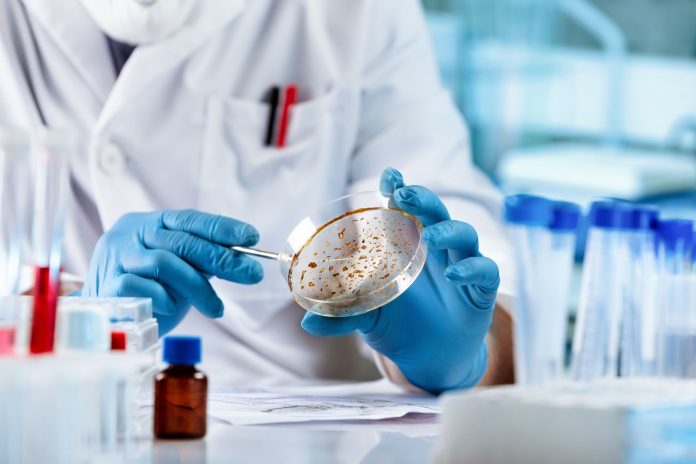Mold growth is a common concern for homeowners as it can have various health implications, including respiratory issues, allergic reactions, and skin irritation. Additionally, mold can cause property damage, compromising the structural integrity of your home.
If you suspect mold in your dwelling, it’s essential to conduct mold testing to accurately assess the problem’s extent and implement appropriate corrective measures. This article will walk you through the basics of the process, providing valuable information to address the potential health risks and safeguard your home.
Tampa Mold Testing or another reputable company in your location can offer professional mold testing services. They utilize advanced techniques to assess mold presence and provide comprehensive reports precisely.
Now, it’s time to delve into the essential aspects of mold testing:
Table of Contents
Understanding Mold And Its Health Effects
Mold is a type of fungi you can find indoors and outdoors. It requires moisture to grow and reproduce, making damp and humid environments ideal breeding grounds. Some common indoor mold species include Aspergillus, Penicillium, Cladosporium, and Stachybotrys chartarum, often called black mold. These release spores into the air, and inhalation poses health risks.
Exposure to mold spores can lead to various health problems, especially for individuals with pre-existing respiratory conditions or weakened immune systems. They can irritate the lungs and trigger symptoms such as coughing, wheezing, shortness of breath, and chest tightness. Prolonged mold exposure may lead to respiratory illnesses such as asthma or the worsening of existing diseases.
In addition to respiratory issues, mold exposure can cause allergic reactions in vulnerable individuals. This hypersensitivity can manifest in sneezing, runny or stuffy nose, itchy or watery eyes, and throat irritation. Some individuals may also experience skin irritation or rashes.
If you or your family members experience these symptoms, it’s essential to consider the possibility of mold in your home. Mold testing can help determine if this organism is present and identify the specific species causing the issues.
Identifying Common Mold Locations
Mold can grow in various areas of your home, especially those prone to moisture accumulation.
Bathrooms, kitchens, basements, and areas affected by water leaks are typical hotspots for mold growth. High humidity levels and regular bathroom water usage create an ideal hotbed for mold on surfaces like shower tiles, grout, and bathroom fixtures. Kitchens are also susceptible to mildew due to cooking activities and potential water leaks from sinks or appliances. Pay close attention to areas around the sink, refrigerator, dishwasher, and under countertops where wetness can accumulate unnoticed.
Basements often have higher humidity levels and are prone to water seepage or flooding. Dark corners, damp walls, and items stored in such locations are particularly prone. Hence, it’s crucial to regularly inspect and address any signs of musty odors or discoloration on walls or stored items.
The Importance Of Mold Testing
When assessing and addressing mold growth, one can’t overstate the importance of mold testing. The examination provides valuable insights into mold’s presence, type, and concentration levels. Conducting a thorough investigation helps you make informed decisions about the necessary remediation steps to ensure a safe and healthy living environment.
The process involves collecting samples from various areas of your home, including visible mildew growth and potentially affected areas. The collected samples are carefully sent to a laboratory for analysis, where experts examine them to identify the specific type or species of mold present.
DIY Mold Testing Vs. Professional Services
While DIY mold testing kits are available and cost-effective, professional mold testing services offer more accurate and reliable results. Certified professionals have the expertise to identify mold species precisely and assess potential health hazards. They also use specialized equipment to detect hidden mold growth and provide comprehensive reports for rectification.
The Different Types Of Mold Tests
Various methods are available for mold testing, each with advantages and limitations. Here are the most common types:
- Air Sampling – This measures the concentration of mold spores in the air. It involves using specialized equipment to collect samples of the airborne particles.
- Surface Sampling – This involves collecting samples from visible mildew growth or suspected mold-contaminated surfaces. Surface samples are typically collected using swabs or tape lifts.
- Bulk Sampling – Professionals collect samples from building materials or contents suspected of harboring mold. This process involves physically removing a portion of the material or object and sending it to the laboratory for analysis.
Professional mold testers have the expertise to determine the most appropriate testing method based on your specific situation. They consider factors such as the suspected areas of mildew growth, the surfaces involved, and the overall goals of the testing process.
Interpreting Mold Test Results
Interpreting mold test results can be complex, requiring knowledge of mold species and their associated health dangers. They use various analytical processes like culturing, polymerase chain reaction (PCR) testing, and microscopic examination.
Professional mold testing services provide detailed reports that explain the findings clearly and comprehensively. These reports help homeowners make informed decisions regarding mold removal.
Mold Remediation And Prevention
If mold is present in your home, it’s crucial to take immediate corrective measures to mitigate risks and prevent further damage. Hiring professional mold remediation services ensures the effective removal of mold and reduces the chances of recurring growth. Additionally, implementing preventive measures such as controlling moisture levels and improving ventilation can help prevent future mold problems.
Wrapping It Up
Recognizing the significance of mold testing is vital in safeguarding your home and ensuring the well-being of your family. By familiarizing yourself with the basics of mold testing, you can take proactive measures to address this potential health concern effectively.
However, to ensure accurate results and expert guidance, it’s essential to consult professionals specializing in this service. They possess the knowledge, experience, and specialized equipment to assess and analyze mold presence in your dwelling accurately. By relying on their expertise, you can gain valuable insights and guidance for the most effective mold treatment strategies.
















